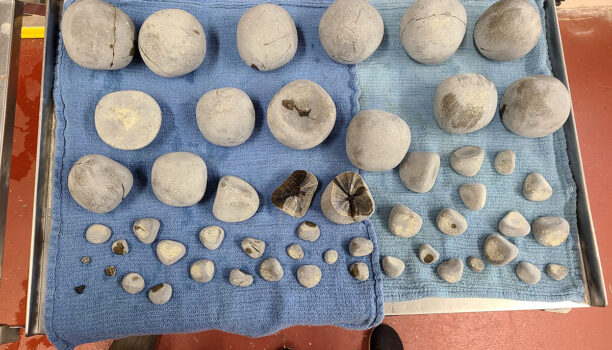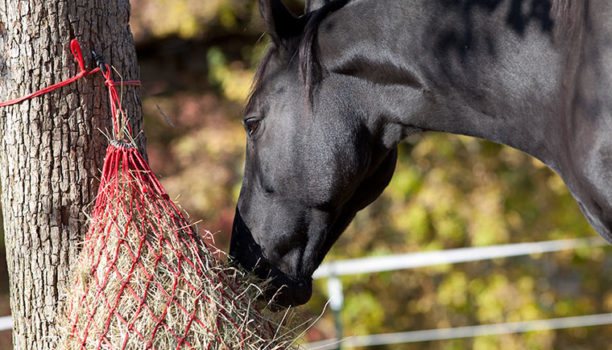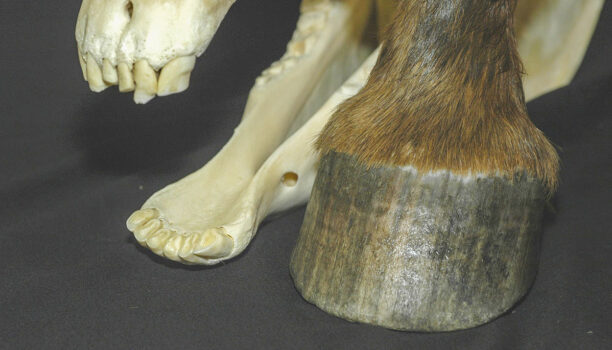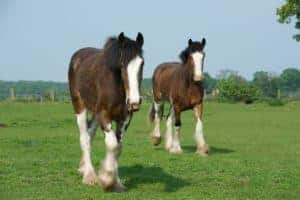Awesome Antioxidants and How They Help Horses
Planning for Equine Emergencies
Regenerative Therapies for Managing Equine Osteoarthritis
Horse Topline-Building Tips
Deciphering Your Feed Tag: Senior Horses
Endocrine Disease and Performance Horses—More Than Laminitis
HERDA: 20 Years Later
Helping Clients Navigate Equine Supplements: The Veterinarian’s Role
Managing Your Performance Horse’s Joints
Aging Metabolic Horses—What Do They Need?
Trending Events:
Topics

Study: Protein After Exercise Might Help Horses Build Muscle
Scientists believe feeding horses a high-protein meal shortly after exercise could improve muscle health and growth; however, more research is needed.



Awesome Antioxidants and How They Help Horses

Evaluating Horse Diets: What to Know

Enteroliths in Horses: Causes and Prevention
What are enteroliths and what happens if your horse has one (or several)?
Large Colon Volvulus in the Postpartum Mare
Reducing Your Horse’s Risk of Impaction Colic During Winter
Colic Risk and Late-Cut Hay
Understanding Pedunculated Lipomas in Horses

Study: Protein After Exercise Might Help Horses Build Muscle
Scientists believe feeding horses a high-protein meal shortly after exercise could improve muscle health and growth; however, more research is needed.
Tips for Horse Owners to Prepare for Hurricanes
How the Equine Hoof Holds Up Over a Lifetime
Awesome Antioxidants and How They Help Horses

How the Equine Hoof Holds Up Over a Lifetime
Healthy, well-maintained hooves can remain strong and functional for decades—supporting horses from their first wobbly steps to their final years. Read more in The Horse‘s Older Horse 2025 issue.
Pasture Grass Sugar Levels: When Are They Lowest?
Aging Metabolic Horses—What Do They Need?
Equine Metabolic Syndrome
Equine Hoof Care Teams at Work

Feeding Ulcer-Prone EMS Horses
One reader wants to know how she can manage her metabolic horse that is also prone to gastric ulcers. Here’s what she should consider.
Alfalfa: Is Hay or a Pellet Product Better Before Riding?
Why Do Horses Buck?
Supplement Could Improve Equine Gastric Ulcer Scores
Tackling Equine Gastric Ulcers
Sugar and Peppermint Treats: Not Safe for All Horses
Sponsored Content
| Top articles from our trusted partners

Endocrine Disease and Performance Horses—More Than Laminitis
Learn the latest on equine endocrine disease—causes, diagnosis, dynamic testing, and whole-horse treatment strategies—beyond just laminitis. Sponsored by Kentucky Performance Products.

Ask a Pro: 4CYTE™ for Horses: Why Early Joint Care Matters
Alexandra Medved discusses 4CYTE™ for early osteoarthritis management in horses, highlighting its uses and real-world success stories.

Feeding Programs for Orphan Foals
When a broodmare dies, prompt colostrum delivery and a well-managed milk replacer or nurse mare plan are key to helping orphan foals grow and stay healthy.

Feeding Young Growing Horses to Reduce the Risk of Developmental Orthopedic Disease
Early nutrition plays a key role in supporting healthy growth in young horses and minimizing the risk of orthopedic issues.

A Challenging Laminitis Case in a PPID Pony
A case study of Squash, a 16-year-old pony, highlights strategies that helped improve her quality of life and manage laminitis.

Wound Care Strategies for Healing Wounds in Horses
This presentation describes the use of various wound healing techniques and dressings for granulating wounds. Sponsored by Phovia.

Read our Current Issue of The Horse
Unlock exclusive content including the latest and most reliable news and information regarding equine health, care, management, and welfare through our magazine and TheHorse.com.
- Aging Metabolic Horses--What Do They Need?
- Keeping the School Horse Sound and Healthy
- Equine Health Emergencies: Plan Ahead for Best Outcomes
- Equine Metabolic Syndrome Facts
- Case Study: Keeping the Older Show Horse Competitive
- Feeding to Avoid or Reduce Inflammation
- Balancing Work and Rest for Horses’ Long-Term Soundness
- Recognizing Vision Problems in Horses





















